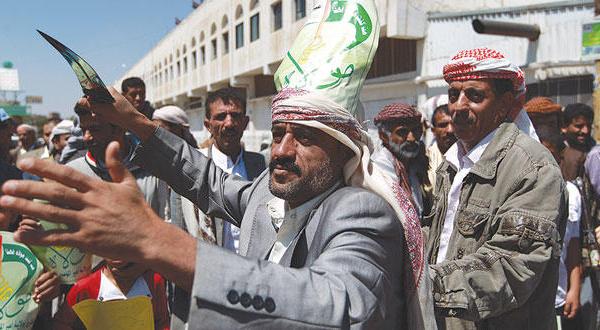Why has Tehran chosen the Houthis as allies?
Abdulrahman al-Rashed/Al Arabiya/May 10/16
Iran’s goals have nothing to do with Shiism, Islam, or opposition to Israel and the West. These are temporary slogans that serve a bigger aim of regional domination. Iran did not choose the Houthis in Yemen as their allies because they hail from the Zaidi sect, or because they claim to be descendants of the prophet. It did so for geopolitical reasons, particularly because they reside in Saada province bordering Saudi Arabia.
In Yemen, there are Zaidi tribes that are larger and far more significant than the Houthis. There are more prominent families that also claim to be descendants of the prophet, such as the Hamid ad-Din family, which ruled the Mutawakkilite Kingdom of Yemen and whose governance lasted until the 1960s.
However, Iran found in the Houthis a means to threaten Saudi Arabia. Tehran has been actively cultivating and organizing the Houthis since the late 1990s, and convinced their leader Hussein al-Houthi that the imamate lies with his family and that their governance of Yemen must be religiously imposed on the people by divine right. By adopting these beliefs, this small marginal group upset traditional Yemeni society, angered Zaidi scholars who accused the group of infidelity, and clashed with Sunni Shaafa’is in Saada.
Iran continued to welcome Houthi youths and enrol them in religious classes to teach them an ideology based on absolute obedience to Iran’s supreme leader. It also generously funded the Houthis for a decade and a half. First they clashed with the regime of then-President Ali Abdullah Saleh, then they attacked Saudi Arabia in 2009 under the same Iranian slogans. At the time, Riyadh spoke of their suspicious ties with Tehran, but many refused to believe it.
Iran found in the Houthis a means to threaten Saudi Arabia
There are many similarities between two models invented by Iran: Hezbollah in Lebanon and the Houthis in Yemen. Tehran got involved with the Shiite sect in Lebanon and marginalized almost all its traditional and regional leaders, replacing them with anonymous figures such as Hassan Nasrallah, who announced his full obedience to Iran. Tehran rewarded him with the tools required to control Lebanon. It funded and trained his militia, funded a social category in support of him, and eliminated all those who disagree with Hezbollah’s orientations. Houthi, like Nasrallah, became a leader by supporting Tehran. Like Nasrallah, he exploits his claim to be a descendent of the prophet to justify an imamate and launch religious wars.
Exploitation
It may seem like my statements contradict what I wrote at the start of this article, that politics must not be read from a sectarian or ethnic perspective. However, Iran uses each party according to what they have in common. (he doesn’t say what the commonalities are in the following examples, which is important because he says they prove that he isn’t contradicting himself). It has used the Sunni Hamas and Islamic Jihad in Gaza, as well as some Sunni powers in north Lebanon. It is common to see Sunnis, Arab Christians, nationalists and communists as guests at occasions that serve Iranian propaganda, such as Jerusalem Day in Tehran or events in southern Beirut while Nasrallah delivers speeches. Some of them have recently admitted that they were late in realizing Iran’s intentions. Within this realistic analysis of Iran’s policy, we can note how it is involved in the dispute between Azerbaijan and Armenia.
Tehran supports the Christian Armenians against the Shiite Azeris. Domestically, it suppresses the Ahwazi Arabs who are mostly Shiite. However, in Iraq it is exploiting the sectarian card by supporting Shiite political parties because it hopes they will help it achieve one of its most important political projects: dominate decision-making in Baghdad and indirectly seize Iraq, which is rich in resources and regionally and internationally significant. Iran is behind marginalizing Iraq’s army as it has encouraged and supported the establishment of militias such as the Popular Mobilization Forces. Tehran does not trust Iraq’s army because it consists of various sects and ethnicities.
Iran also supports the current chaos that aims to weaken the rule of Iraqi Prime Minister Haidar al-Abadi. It is doing so with the help of Iraqi figures such as former Prime Minister Nouri al-Maliki. It had been difficult to convince a large segment of Arabs of Iran’s crimes until the genocide began in Syria. Tehran’s involvement in the war ruined its plans and its image among most Arabs and Muslims. It has embarrassed its Sunni allies such as the Muslim Brotherhood, Arab leftists and others. Iran’s support for the Houthis has also put it in confrontation with most Yemenis.



















